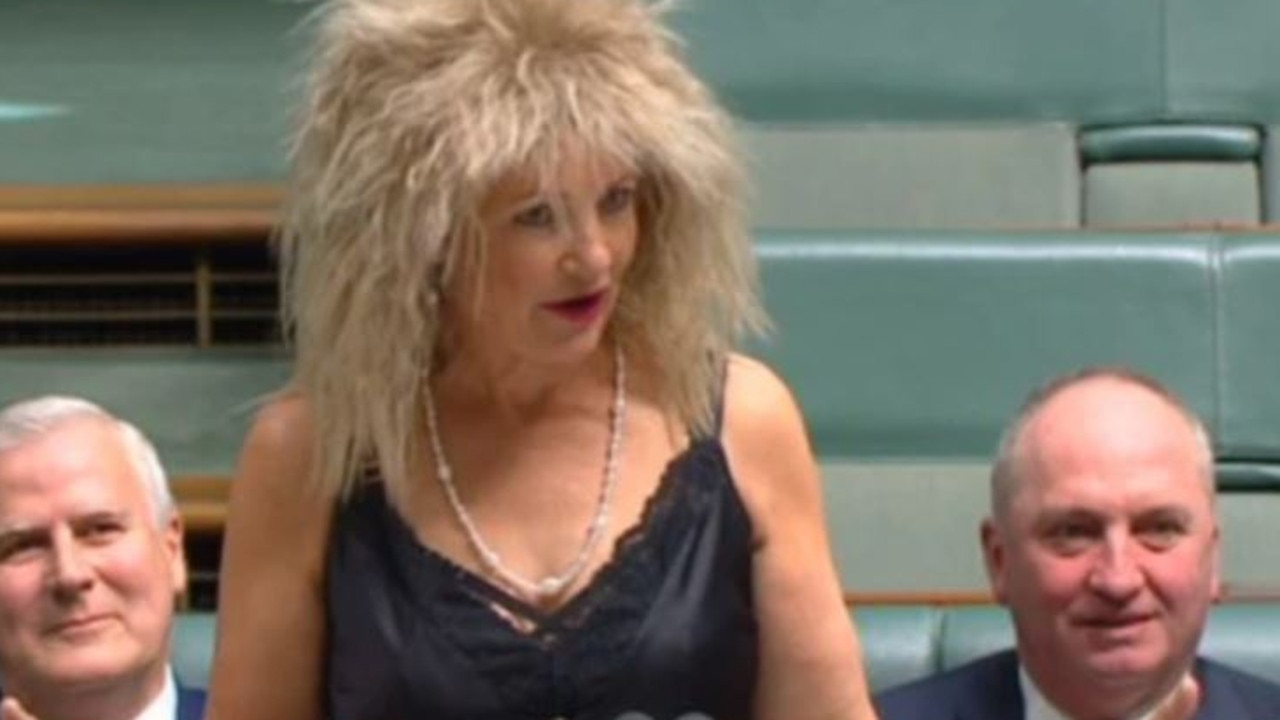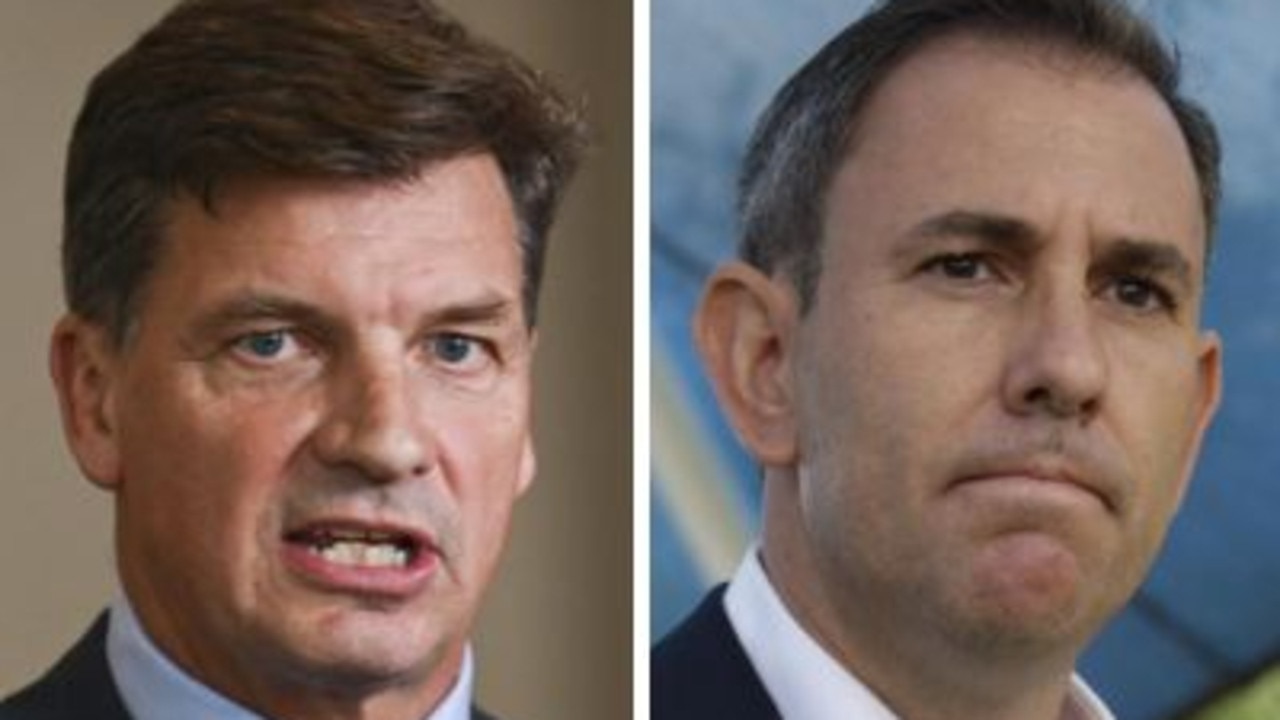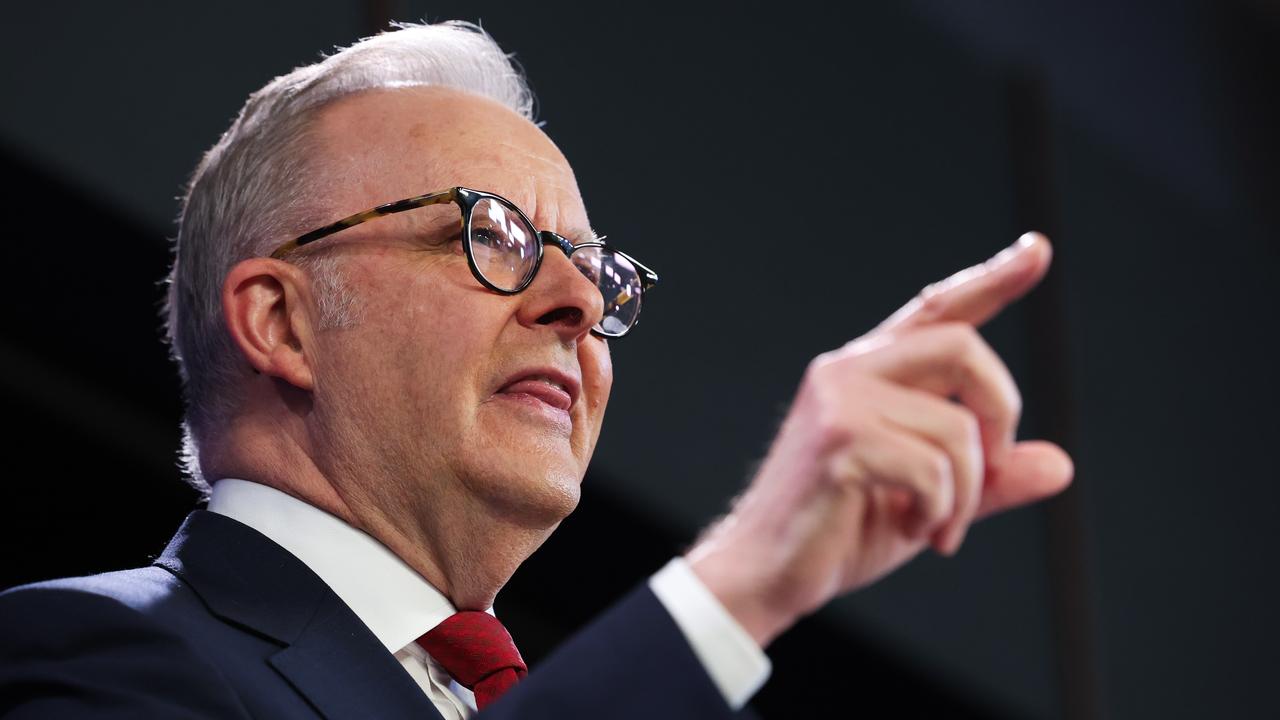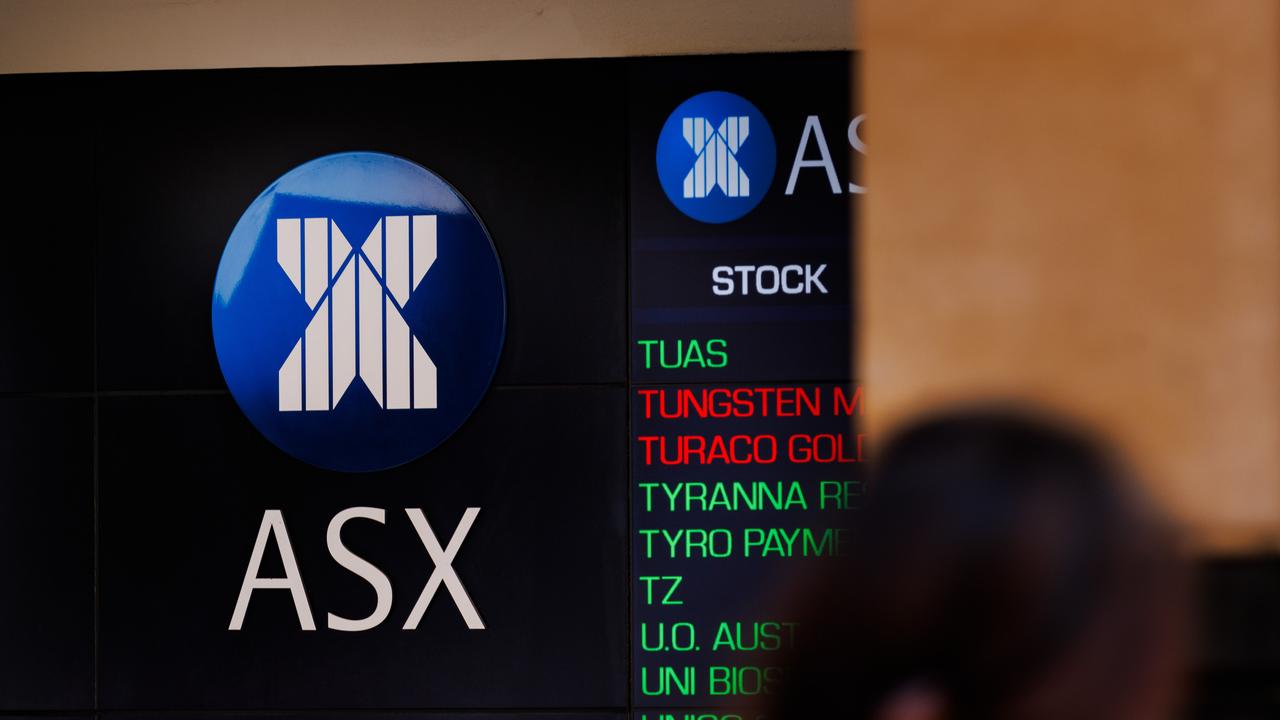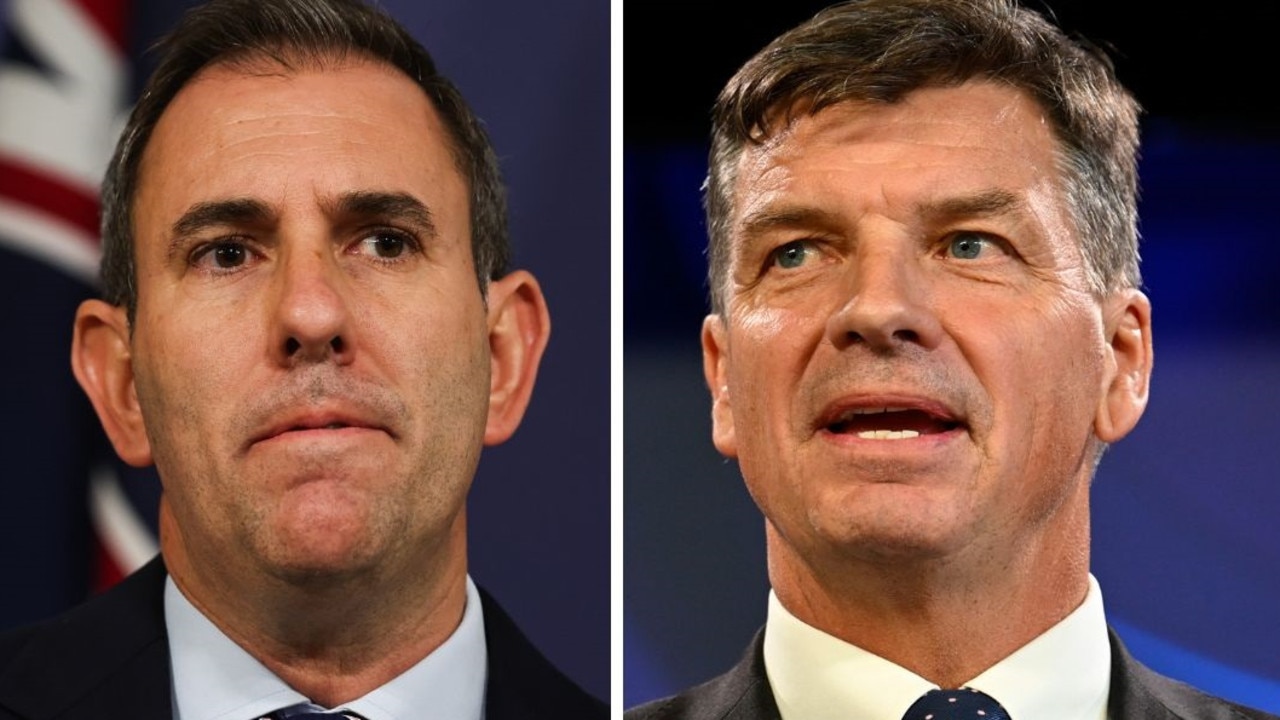Federal government Budget negotiations dominating Parliament’s winter break
IT’S more than three months since the budget and the government is still being stonewalled by a stubborn Senate crossbench. So what could happen next?

Fed Budget
Don't miss out on the headlines from Fed Budget. Followed categories will be added to My News.
MORE than three months ago Joe Hockey stood up in federal Parliament and handed down what he described as a “contribute and build” budget.
But since then he hasn’t had much luck getting others to contribute to the task.
Apart from securing appropriations bills, the only new May budget measure that the Coalition has managed to get the green light for in the Senate is the debt levy on high income earners.
Standing in the way of many of the other proposed changes sits an expanded — and so far stubborn — crossbench.

Senior government Ministers are trying to remain upbeat in the winter break, insisting their critics should not count their chickens before they’ve hatched.
They’ve also rejected calls for a fresh election or a mini-budget rewrite.
However there have been signs they’re willing to soften on key measures when Parliament resumes in just over a week’s time.
The Palmer United Party has said it is united with Labor and the Greens in opposing the $7 GP co-payment, higher education package and welfare reforms.
But after first declaring the government would not negotiate on the extra fee to see the doctor, Health Minister Peter Dutton has signalled there is some wiggle room.
He has confirmed they’re in talks with the Australian Medical Association, which has proposed an alternative plan which would see the fee scrapped for the elderly and disadvantaged.
Mr Dutton’s colleague Education Minister Christopher Pyne has also conceded it is likely passing university fee changes will take “months and months” and he won’t get everything he wants.
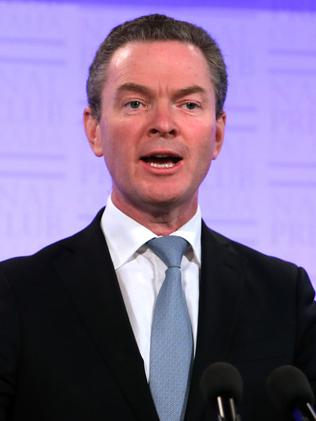
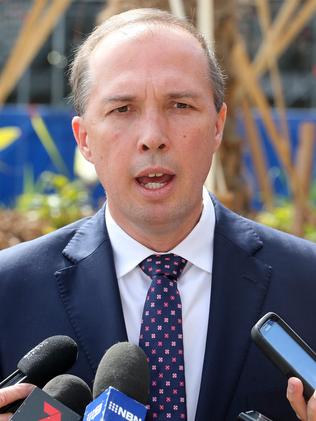
Families Minister Kevin Andrews is another who is “open” to negotiating the controversial six month earn or learn policy for those under 30.
But they’re only a few measures which were announced in May.
The fuel excise hike was meant to have come into force by now but there is not enough support.
Changes to the age pension are also a sticking point, not to mention the Prime Minister’s signature Paid Parental Leave Scheme and the mining tax repeal.
The Treasurer, who has been busy crisscrossing the country meeting with crucial crossbench Senators, has admitted this week the government is not “so precious” that it won’t accept other alternatives.
But at the same time he’s warned that the Coalition might be forced to look at “emergency action”.
If the government learnt anything from the last week of Parliament before the break it was to not underestimate the new Senate players.
Coalition MPs left Canberra having delivered on their key promise to axe the carbon tax, but not without the spectacle of frantic negotiations in the Senate — and in the corridors outside it.
There’s little doubt there will be more to come in the back end of 2014.
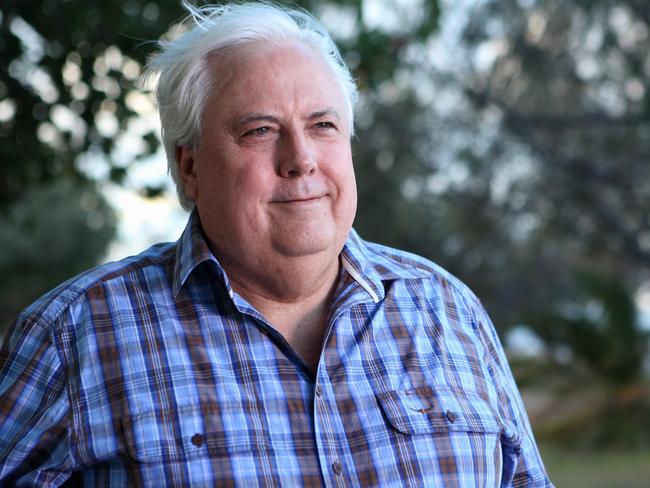
BUDGET SCORE CARD: WHERE THE MEASURES ARE AT
Debt Levy — Passed, but not unanimously
It caused controversy before the budget but the government managed to get support to pass its debt levy on high income earners before the winter break.
But not all in the Coalition backed the levy on incomes over $180,000, with Senators Ian Macdonald and Cory Bernadi raising objections.
Carbon Tax — Passed, but with controversy
The government got the numbers in the Senate to deliver its key promise of repealing the carbon tax last month.
But that wasn’t without frantic negotiations with the Palmer United Party over a key amendment to make power companies pass on price cuts.
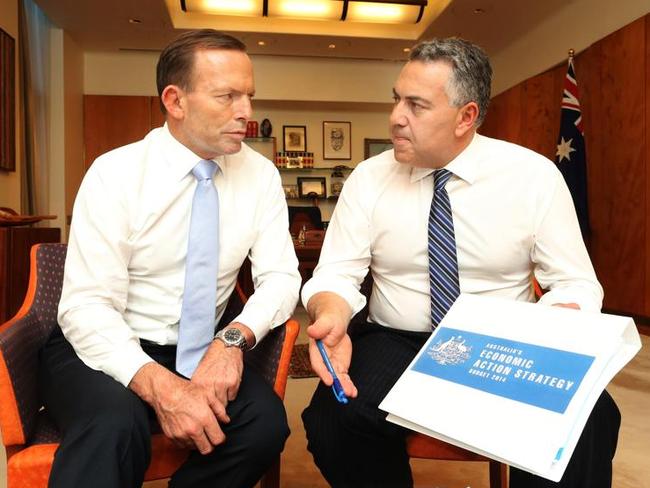
$7 GP Co-payment — Not passed, being negotiated
Labor, the Greens and the Palmer United Party are all against the $7 GP co-payment, which partly will help fund the government’s Medical Research Future Fund.
The Coalition is in talks with the Australian Medical Association on an alternative, which would see the elderly and disadvantaged exempt.
Higher Education Reforms — Not passed, being negotiated
Education Minister Christopher Pyne has admitted it will take “months and months” for the Senate to pass his higher education reforms, and he won’t get everything he’s after.
Labor, the Greens and PUP are all against his plans to deregulate university fees and set HECS loans at the government bond rate.
Welfare Reforms — Not passed, being negotiated
The government has been criticised for its ‘earn or learn’ proposal for young Australians, making them wait six months for the dole.
But it has said it’s open to negotiate with the crossbench Senators.
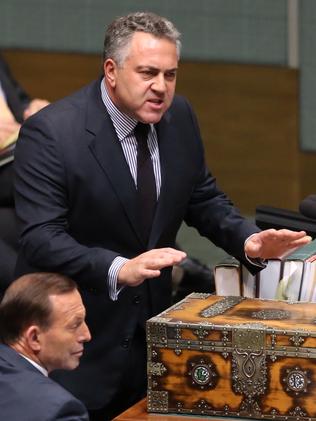
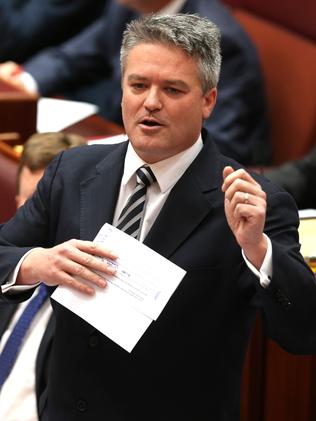
Paid Parental Leave Scheme — Not passed, might be scaled back
The Abbott government insists its PPL Scheme will come into force next July, despite not having introduced legislation into Parliament for it yet.
It’s already scaled back the maximum payout and is reportedly looking at further revisions.
Mining Tax repeal — Not passed, standoff
The Palmer United Party has pledged to help repeal the mining tax, but with one critical condition — keeping the associated tax cuts and School Kids Bonus.
The government doesn’t accept retaining the policies, which are supposed to be paid for by the tax’s revenue.
Fuel Excise — Not passed, standoff
The government’s plan to reintroduce biannual fuel excise indexation does not have the support of Labor, the Greens or the Palmer United Party.
Joe Hockey insists the revenue will build new roads, in turn creating jobs, but his claims the poor will not be hit by the measure have upset low income earners.
Originally published as Federal government Budget negotiations dominating Parliament’s winter break

